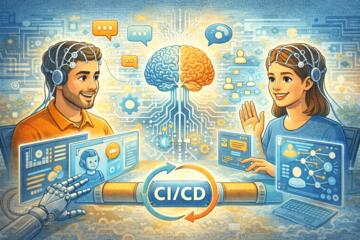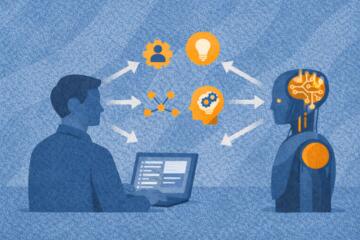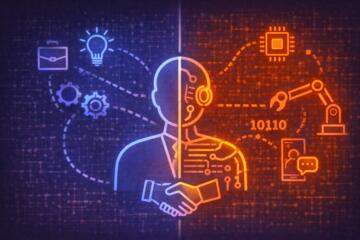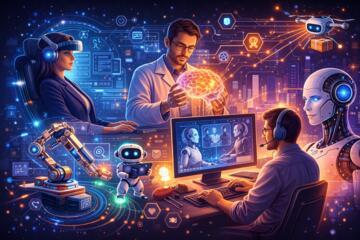The Landscape Is Shifting—And So Are Careers
AI is not a monolith that replaces jobs overnight. Instead, it transforms them—automating tasks, not entire roles. This opens space for new kinds of work, previously unthinkable, and breathes new purpose into existing careers. Take these real-world examples:
-
Radiologists now rely on AI to scan thousands of images, but their role becomes more strategic—communicating diagnoses, making nuanced decisions, and guiding treatment plans.
-
Writers using AI tools like ChatGPT or Sudowrite don’t lose creativity—they gain momentum, testing tone, headlines, or plot twists with instant feedback.
-
HR professionals use AI to sift through applications, but the emotional intelligence to assess team fit or resolve conflict? That’s still human territory.
The Most Valuable Skills in the AI Age
Here are the skills—and the mindsets—that will matter most in a machine-augmented future:
🧠 1. Critical Thinking
When AI generates answers, we need humans to question them. Being able to spot bias, detect false logic, and ask the right questions becomes essential.
Why it matters: AI can make convincing mistakes—critical thinkers are the circuit breakers.
🌀 2. Adaptability and Lifelong Learning
Careers won’t be fixed ladders; they’ll be lattices. People will shift roles and reskill multiple times. Curiosity becomes a professional superpower.
Why it matters: The half-life of skills is shrinking. What you know today may be obsolete in five years.
🤝 3. Emotional Intelligence
Empathy, negotiation, listening—skills AI still can’t fake. In leadership, healthcare, education, or customer service, human connection remains non-negotiable.
Why it matters: People follow people, not processes. Trust can’t be automated.
🎨 4. Creativity and Synthesis
AI can remix, but it can’t originate true vision or human insight. Being able to combine disparate ideas, imagine new paths, or tell compelling stories is future-proof.
Why it matters: AI is the tool—humans bring the why, the emotion, the surprise.
📊 5. Data Literacy
You don’t have to be a data scientist. But understanding how to read, interpret, and ask smart questions of data separates the passive from the powerful.
Why it matters: Informed decisions beat gut instincts—and AI depends on good data.
🔐 6. Ethical Judgment
AI makes decisions that affect lives. From self-driving cars to sentencing algorithms, we need humans to question outcomes, build fairness into systems, and hold the line.
Why it matters: Ethics isn’t a department. It’s a skill every worker must wield.
Emerging Professions in the AI Age
Not science fiction—real roles already on the rise:
-
AI Ethics Officer – Ensures fairness, transparency, and compliance in machine learning systems.
-
Prompt Engineer – Specializes in writing instructions for generative AI tools.
-
Human-AI Interaction Designer – Crafts intuitive interfaces for collaborating with AI.
-
Digital Twin Analyst – Builds virtual replicas of physical systems to simulate and optimize performance.
-
Data Translator – Bridges the gap between technical teams and decision-makers with clear insights.
The Human Edge: What Machines Can’t Replicate
Let’s be clear—machines are fast, accurate, and tireless. But humans bring meaning, values, and connection. The most valuable professionals will be those who combine human depth with machine speed.
[Fast AI + Wise Human] = Exponential Impact
A Realistic, But Optimistic Outlook
The AI age won’t be a golden utopia or a dystopian takeover—it will be what we make of it. Yes, some jobs will disappear. But many more will be reborn. Careers will evolve from static paths to dynamic journeys, and skills will be less about technical expertise alone and more about how you think, adapt, and relate.
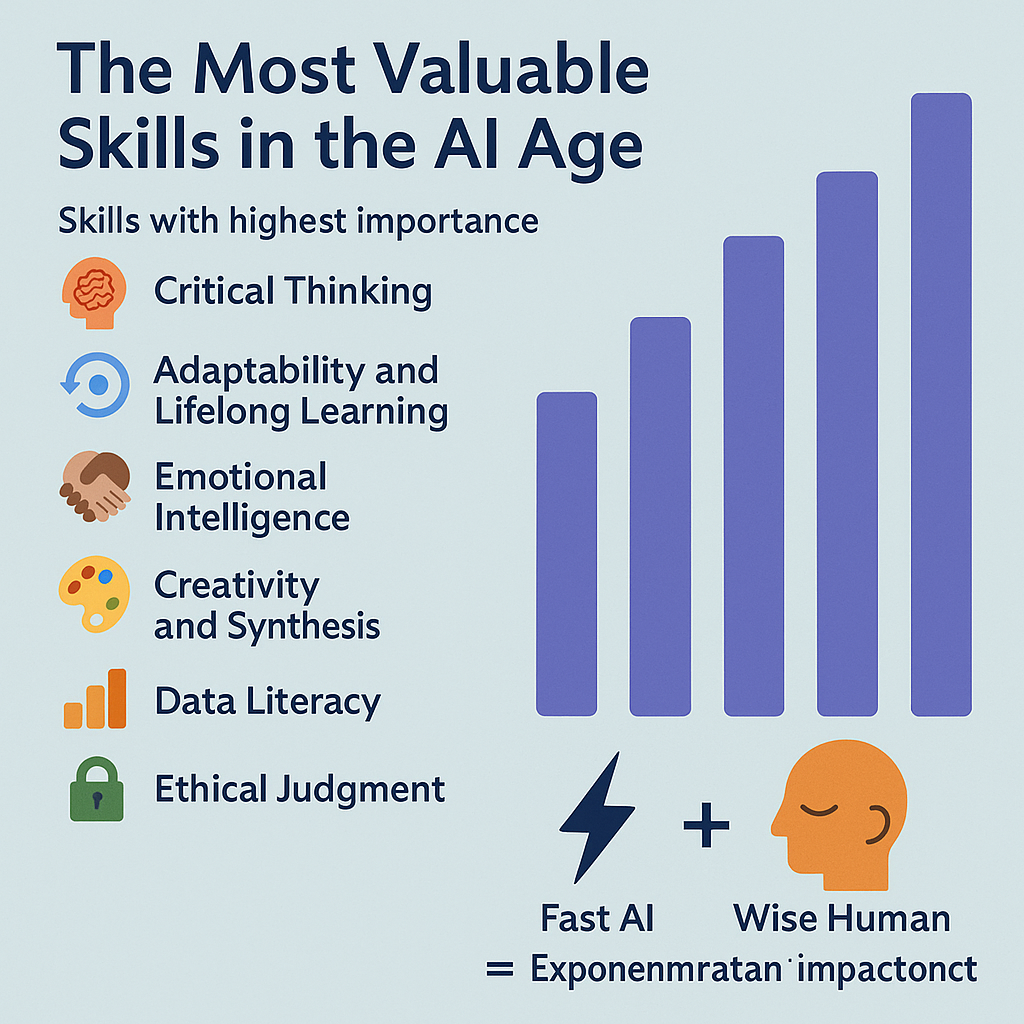
Final Thoughts
Your job title may change. Your tools definitely will. But your ability to learn, connect, question, and create—that’s your edge. In a world of intelligent machines, being fully human is your greatest asset.
The AI age doesn’t belong to the bots. It belongs to the bold.

